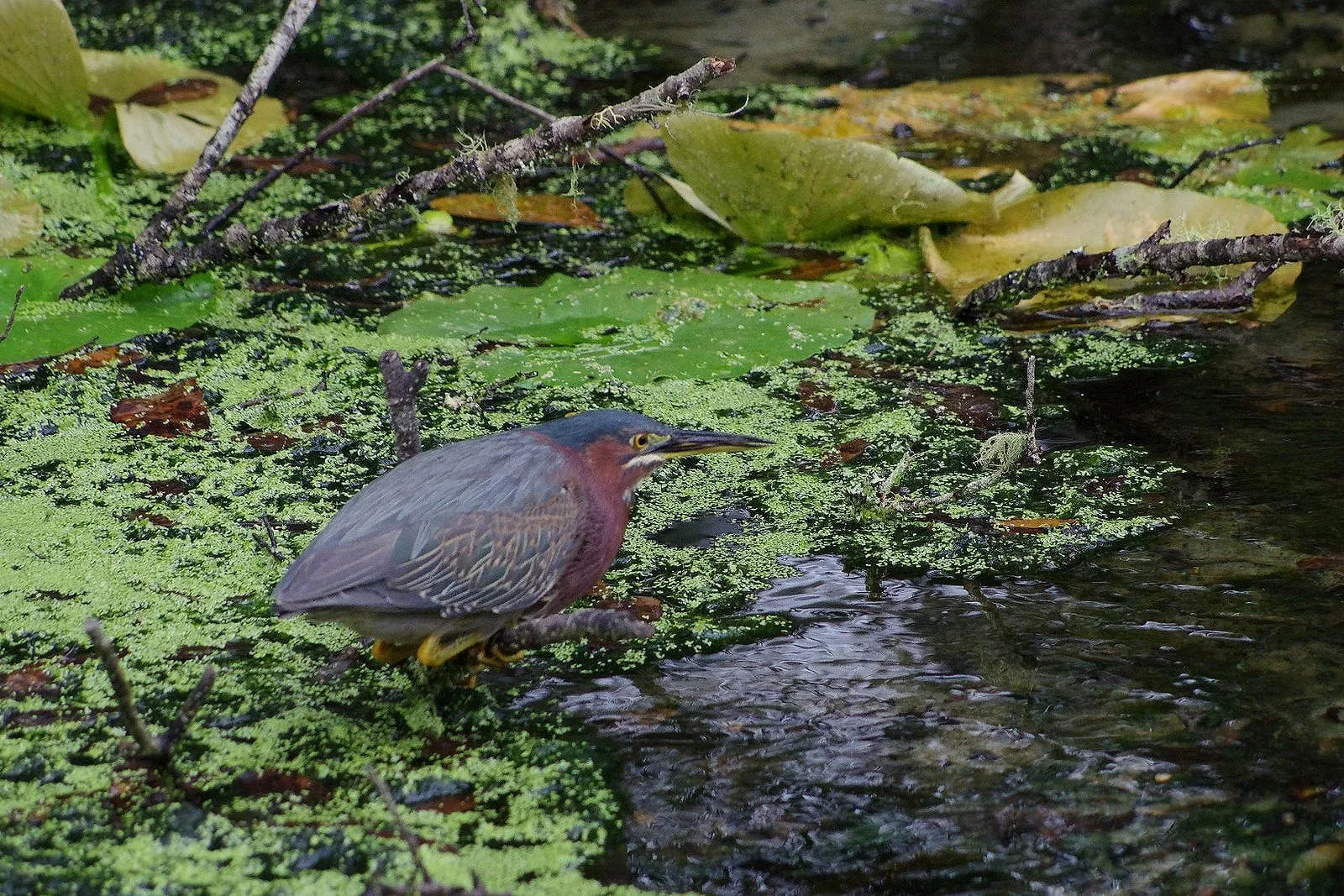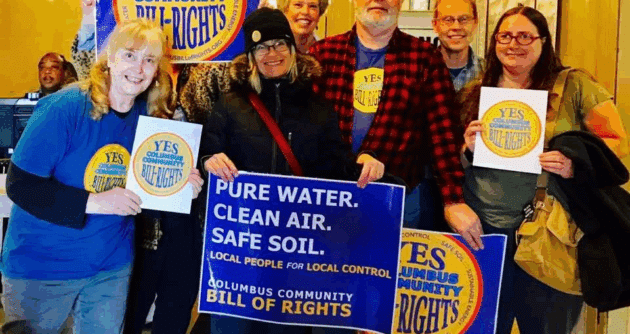A “Wekiva River and Econlockhatchee River Bill of Rights” was passed by Orange County, Florida voters on Nov. 3, 2020.
“Rights of Nature is about recognizing and defending the rights of ecosystems as a whole. That means transformative change including for humans, who are part of the ecosystems we depend upon. This means fighting for basic complimentary rights for all humans, like the right to water for life,” said Markie Miller, an organizer behind the Lake Erie Bill of Rights, the first law on United States settler colonial land to recognize the rights of a specific ecosystem.
CELDF applauds Orange County efforts to protect water and vital ecosystems. However, the ordinance that passed on November 3, 2020 is a misuse of the term “Rights of Nature,” which means something very different from what has been passed. An analysis of the “Wekiva River and Econlockhatchee River Bill of Rights” (WEBOR) measure has multiple issues not consistent with transformative Rights of Nature lawmaking.
The measure attempts to work around, rather than challenge, existing legal and political hurdles facing transformative enforcement of the rights of ecosystems and people.
The measure seeks to restrict the “right to clean water” for only citizens who have “legal residence in the United States.” This undermines the rights of undocumented people, and is contrary to the radically-inclusive human rights paradigm that recognition of the rights of ecosystems requires. Human rights transcend citizenship status.
WEBOR bans any “governmental agency, non-natural person or corporate entity” from “intentionally or negligently” polluting. It then says that pollution in this context “shall have the same meanings” as in state law. This effectively means the measure is seeking to define the enjoyment of the Rights of Nature as merely the enforcement of existing environmental law. This falls short, because, in reality, the fulfillment of ecosystem rights requires the wholesale transformation of existing law—not its reiteration.
Additionally, state legislatures across the country have engaged in a concerted campaign to quash new ideas from emerging from the grassroots, including Rights of Nature lawmaking. After Toledo, Ohio’s Lake Erie Bill of Rights inspired some communities in Florida to begin working toward Rights of Nature lawmaking, the Florida Legislature passed a “state preemption” law to ban local Rights of Nature efforts in the state. WEBOR seems to capitulate to this structure by seeking to be in “harmony with any superior state or federal law.”
These are among our critiques of the “Wekiva River and Econlockhatchee River Bill of Rights.”
“What we need is an unequivocal law or Constitutional amendment granting the Rights of Nature and its components—including humans—unalterable supremacy over commercial profits and conferring standing on natural objects to sue for their own protection,” said Carol Van Strum, advocate for a Lincoln County, Oregon Rights of Nature ordinance that stood for two years. Van Strum is the ongoing legal spokesperson for the Siletz River ecosystem in court proceedings to defend the law.
“We insist on real, enforceable Rights of Nature—nothing else will suffice to end our environmental and climate catastrophes,” said CELDF organizers Tish O’Dell, Ben Price, Chad Nicholson, Michelle Sanborn and Kai Huschke.
For more information on the need to protect the core transformational principles of Rights of Nature: https://celdf.org/2020/09/democratic-party-must-not-water-down-rights-of-nature/
Rights of Nature is not a silver bullet reform, but rather part of a mosaic of decolonial legal concepts that must be advanced in tandem to take on the political and legal forces upholding the current destructive status quo.
About CELDF — Community Environmental Legal Defense Fund
The Community Environmental Legal Defense Fund (CELDF) is building a movement for Community Rights and the Rights of Nature to advance democratic, economic, social, and environmental rights – building upward from the grassroots to the state, federal, and international level.
###
A “Wekiva River and Econlockhatchee River Bill of Rights” was passed by Orange County, Florida voters on Nov. 3, 2020.
“Rights of Nature is about recognizing and defending the rights of ecosystems as a whole. That means transformative change including for humans, who are part of the ecosystems we depend upon. This means fighting for basic complimentary rights for all humans, like the right to water for life,” said Markie Miller, an organizer behind the Lake Erie Bill of Rights, the first law on United States settler colonial land to recognize the rights of a specific ecosystem.
CELDF applauds Orange County efforts to protect water and vital ecosystems. However, the ordinance that passed on November 3, 2020 is a misuse of the term “Rights of Nature,” which means something very different from what has been passed. An analysis of the “Wekiva River and Econlockhatchee River Bill of Rights” (WEBOR) measure has multiple issues not consistent with transformative Rights of Nature lawmaking.
The measure attempts to work around, rather than challenge, existing legal and political hurdles facing transformative enforcement of the rights of ecosystems and people.
The measure seeks to restrict the “right to clean water” for only citizens who have “legal residence in the United States.” This undermines the rights of undocumented people, and is contrary to the radically-inclusive human rights paradigm that recognition of the rights of ecosystems requires. Human rights transcend citizenship status.
WEBOR bans any “governmental agency, non-natural person or corporate entity” from “intentionally or negligently” polluting. It then says that pollution in this context “shall have the same meanings” as in state law. This effectively means the measure is seeking to define the enjoyment of the Rights of Nature as merely the enforcement of existing environmental law. This falls short, because, in reality, the fulfillment of ecosystem rights requires the wholesale transformation of existing law—not its reiteration.
Additionally, state legislatures across the country have engaged in a concerted campaign to quash new ideas from emerging from the grassroots, including Rights of Nature lawmaking. After Toledo, Ohio’s Lake Erie Bill of Rights inspired some communities in Florida to begin working toward Rights of Nature lawmaking, the Florida Legislature passed a “state preemption” law to ban local Rights of Nature efforts in the state. WEBOR seems to capitulate to this structure by seeking to be in “harmony with any superior state or federal law.”
These are among our critiques of the “Wekiva River and Econlockhatchee River Bill of Rights.”
“What we need is an unequivocal law or Constitutional amendment granting the Rights of Nature and its components—including humans—unalterable supremacy over commercial profits and conferring standing on natural objects to sue for their own protection,” said Carol Van Strum, advocate for a Lincoln County, Oregon Rights of Nature ordinance that stood for two years. Van Strum is the ongoing legal spokesperson for the Siletz River ecosystem in court proceedings to defend the law.
“We insist on real, enforceable Rights of Nature—nothing else will suffice to end our environmental and climate catastrophes,” said CELDF organizers Tish O’Dell, Ben Price, Chad Nicholson, Michelle Sanborn and Kai Huschke.
For more information on the need to protect the core transformational principles of Rights of Nature: https://celdf.org/2020/09/democratic-party-must-not-water-down-rights-of-nature/
Rights of Nature is not a silver bullet reform, but rather part of a mosaic of decolonial legal concepts that must be advanced in tandem to take on the political and legal forces upholding the current destructive status quo.
About CELDF — Community Environmental Legal Defense Fund
The Community Environmental Legal Defense Fund (CELDF) is building a movement for Community Rights and the Rights of Nature to advance democratic, economic, social, and environmental rights – building upward from the grassroots to the state, federal, and international level.
###


